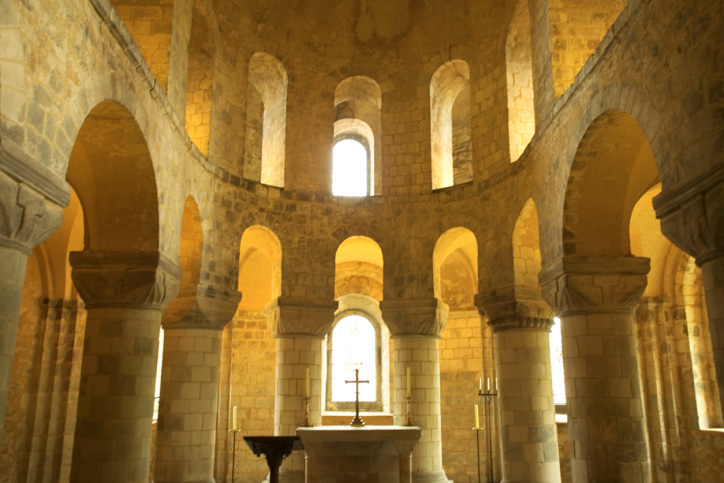
July 6, 2012, by Tara de Cozar
Medieval insight – the postgrad perspective
Some more postgrad love from the Research Exchange blog today… Tomorrow sees the fourth annual Institute for Medieval Research (IMR) postgraduate conference hosted by the University. This has quickly become an event of note in the medievalist calendar, and the programme at this year’s conference won’t disappoint. ‘Rethinking Medieval Methodologies: 21st Century Approaches to Understanding the Middle Ages’ aims to do what it says on the tin. Delegates will look at medieval texts and sources in a new way, to let go of past assumptions and return to the examinations of a society’s building blocks – language, architecture, ability and status – to examine how people actually lived their lives.
It all sounds so obvious, but the concept of going back to basics is relatively recently according to Dr Christina Lee – lecturer in Viking Studies in the IMR and keynote speaker at tomorrow’s conference. Christina claims Viking burial and funerary rites, and disease and disability in medieval times among her vast areas of expertise. It’s this perspective that she comes from when talking about ‘new approaches’.
The general understanding of medieval societies is that anyone who was not healthy didn’t really stand much of a chance, but that’s because we look at it from the perspective of our own understandings and experience, says Christina. “If we look at the texts, what we can see is care. That doesn’t mean that people were treated nicely, but that they had their place and their purpose.”
“We’re thinking about it in terms of our modern economy, and current headlines such as the cutting of disability benefits for people who are unable to work. But in a medieval economy there were plenty of people who didn’t ‘work’ in the modern sense. The aristocracy and the clergy didn’t ‘work’, but they were still an important society.”
Christina cites the example of a woman found through her research who was paralysed, but considered THE go-to person for intercessional prayer. “It’s almost as if her paralysis was a benefit, contrary to thinking today, which sees the perfect body as the ideal. This woman had a very important role – intercessional prayer was a person’s route to heaven. She was disabled, we don’t know whether she g=had a happy life, but she had a very clear purpose within society. In assigning a purpose to people of very different abilities – medieval society was better at doing that than we are!”
Interesting stuff. Expect this kind of thing and more at the conference, which is organised by and features papers from medieval postgrads across the UK. It attracts an international audience, and has moved dates for the first time this year to fit in with the annual International Medieval Congress, which takes place at the University of Leeds from Monday to Thursday, 9-12 July.
“We’re really proud of our postgraduate researchers, they make a hugely important contribution to the landscape of knowledge,” says Christina. “Yes, they still have a way to go in their training and learning, but they play an important rolw – that’s why these conference is important. They ask questions, and dialogue in research is key. Someone always needs to query the current model, look at it with fresh eyes.
“And our postgrads work across the whole Faculty of Arts. English researchers and music researchers think in different way, but we are all medievalists. This is so valuable.”
The conference takes place in the Trent Building on University Park tomorrow (Sat 7 July) from 9am – 5pm. Contact Christina for more information.
No comments yet, fill out a comment to be the first

Leave a Reply